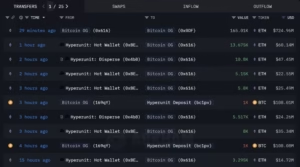Crypto security expert Michael Lewellen, a lecturer at Dallas University and a board member of the Texas Blockchain Council, has filed a lawsuit against the U.S. Department of Justice (DOJ). This high-profile case is a reaction to what Lewellen describes as the DOJ’s “flawed and unjust” approach to blockchain code development.
Lewellen’s lawsuit emerges amid a legal crackdown on crypto mixers, including Tornado Cash, by federal prosecutors who are seeking to classify protocols like Tornado Cash as money-transmitting services. The government has accused blockchain developers of knowingly crafting code that could be misused by criminals in the future. This interpretation by the DOJ has drawn widespread criticism from the crypto community, which argues that such a stance is akin to blaming car manufacturers for accidents on the road.
The importance of this lawsuit cannot be overstated. It seeks to affirm the rights of innovators in the blockchain sphere and aims to ensure that laws are not misused to stifle technological progress. Lewellen has stated, “For too long, the Biden administration has utilized a lack of clarity to intimidate developers and drive them away from the U.S. This trend must end.” His comments underscore a growing concern among crypto advocates about the government’s regulatory reach.
Three main arguments form the backbone of Lewellen’s complaint:
- The DOJ lacks the statutory authority to prosecute software creators for allegedly operating “money-transmitting businesses.”
- The DOJ’s actions infringe on First Amendment rights, potentially curtailing free speech and expression through code.
- The department’s legal maneuvers violate due process, eroding the fundamental rights of developers.
Support from the crypto advocacy group CoinCenter bolsters Lewellen’s efforts, highlighting a broader movement within the industry to protect the right to develop code freely. The ethos behind this lawsuit is not merely about a legal battle; it’s about enabling innovation in the face of adversity. As Lewellen elaborated, the ongoing crackdown deters potential builders from contributing to blockchain advancements.
This case is especially notable in light of a previous ruling where a federal judge determined that code writers cannot be held legally accountable for creating decentralized protocols. Following this decision, Tornado Cash was removed from the Treasury’s sanctions list, yet the developers still face potential prosecution by the DOJ.
As the lawsuit unfolds, the implications for the blockchain community and software developers will be significant. If successful, it could pave the way for clearer regulations that protect innovators while allowing for the continued growth of the blockchain ecosystem in the United States.




